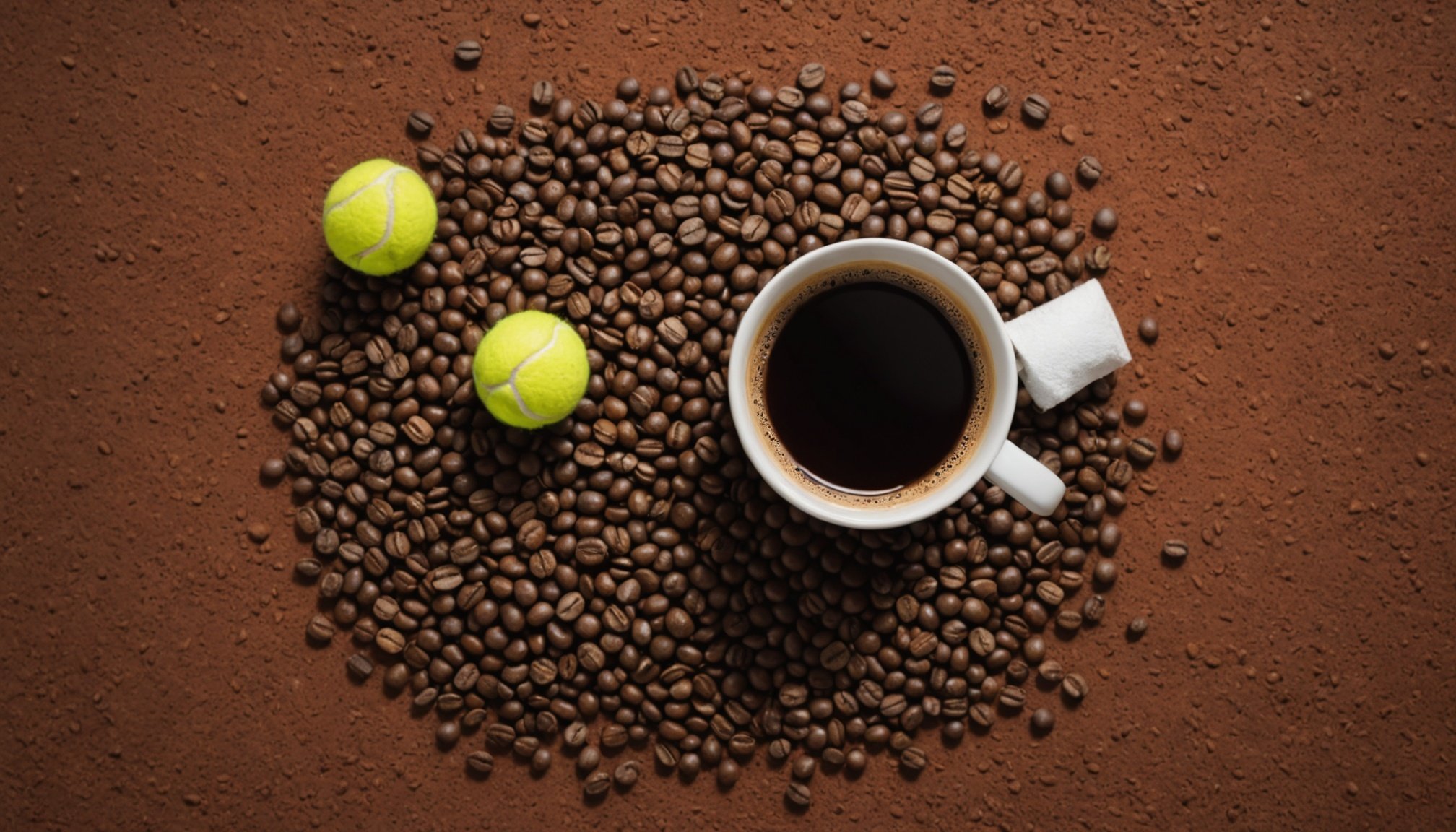Understanding Caffeine and Athletic Performance
Caffeine is renowned for its stimulating properties, widely consumed by athletes to boost their athletic performance. This potent substance influences the central nervous system, resulting in increased alertness and reduced perception of effort. As a result, many individuals experience improved concentration and endurance, thanks to caffeine’s effects.
Scientific Mechanisms
The sports science community extensively studies caffeine, exploring how it enhances performance. Caffeine works by blocking adenosine receptors, reducing tiredness, and elevating dopamine levels for increased motivation. Consequently, athletes often find it easier to push their limits.
Also read : Top Strategies to Boost Coordination and Agility for Soccer Players
Relevance in Endurance Sports
Endurance athletes particularly benefit from caffeine’s role in prolonging performance and delaying fatigue. Research indicates caffeine mobilizes fatty acids from fat tissue, thereby preserving glycogen stores. This is crucial in endurance sports like marathons and cycling, where energy conservation plays a pivotal role in success.
Incorporating caffeine, athletes must consider individual tolerance levels and optimize their intake for maximal performance gains. Personalizing intake strategies can harness caffeine’s benefits effectively, aligning with specific sporting demands and personal preferences. Understanding how caffeine interacts with the body is essential for athletes seeking competitive advantages.
In parallel : Top Exercises to Boost Grip Strength for Rockstar Climbers: Unlock Your Climbing Potential!
Caffeine’s Impact on Tennis Performance
In the realm of tennis performance, athletes are continuously exploring ways to gain an edge. One popular method involves harnessing the benefits of caffeine.
Effects on Physical Stamina
The positive impact of caffeine on physical stamina is well-documented. It ramps up the production of adrenaline, which in turn prepares muscles for exertion. Athletes report enhanced endurance and reduced muscle pain, enabling them to sustain high-level performance for longer durations. This effect is beneficial during prolonged matches, where maintaining energy levels is crucial.
Effects on Mental Focus
Mental acuity is equally critical in tennis, and caffeine’s influence is notable. By antagonizing adenosine receptors, caffeine enhances wakefulness and cognitive function. Sports psychology experts frequently reference caffeine’s ability to improve concentration and decision-making. These are essential in high-stakes situations where strategic thinking can dictate match outcomes.
Research Studies in Tennis Environments
Extensive research supports caffeine’s merits within tennis. Studies indicate that players experience quicker reaction times, allowing them to respond rapidly to fast-paced rallies. This quickened reaction time, linked to improved concentration, showcases a direct connection between caffeine intake and top-tier tennis performance.
Optimal Caffeine Consumption for Tennis Players
Caffeine dosage plays a significant role in enhancing on-court performance. For tennis players, the recommended dosages for peak performance typically range from 3 to 6 milligrams per kilogram of body weight. This dosage can help boost focus, endurance, and muscle strength, particularly in demanding matches.
Timing is crucial when it comes to caffeine intake. For optimal results, consumption should occur approximately 30 to 60 minutes before a match. This allows caffeine levels to peak in the bloodstream, aligning with game-time needs. Proper timing ensures that players are energized without experiencing the common drawbacks, such as jitters or energy crashes.
Various caffeinated beverages present differing pros and cons. For instance, coffee is rich in antioxidants and more natural, while energy drinks often contain additional supplements such as taurine and B vitamins that may aid performance. However, sugar content in some energy drinks might lead to an unwelcome sugar crash. Green tea, offering a moderate level of caffeine, is a gentler option with additional health benefits.
Implementing a game day strategy regarding caffeine consumption can significantly impact a player’s performance. Combining the right caffeine dosage and timing ensures players maintain sharpness and endurance throughout the match.
Anecdotes and Insights from Professional Players
Exploring the use of caffeine by professional athletes offers a fascinating look into player experiences and strategies. Many professional tennis players have integrated caffeine into their routines to enhance performance.
Notable examples of caffeine use
Professional athletes such as Serena Williams and Novak Djokovic have openly discussed their use of caffeine. Williams, for example, has been reported to enjoy a coffee before her matches, using it as part of her mental and physical preparation. Djokovic’s team analyses even the smallest detail, ensuring that his caffeine intake is optimal for performance enhancements.
Testimonials from professional tennis players
Caffeine’s role has been acknowledged in numerous case studies, where players have shared how it improves focus and reaction times. Rafael Nadal mentioned how strategically timed caffeine shots give him an edge during crucial match moments. These player experiences highlight caffeine’s potential in extending endurance and optimizing reflexes.
Historical context of caffeine in tennis
Traditionally, caffeine usage in tennis has evolved. Previously seen as merely a stimulant, its strategic adoption is now backed by scientific understanding. Players’ strategies on game day frequently involve careful planning of caffeine intake, aiming to maximize energy and concentration, ultimately impacting match outcomes positively.
Potential Side Effects and Considerations
Caffeine, while boosting energy and focus, can present side effects that deserve careful consideration. Commonly, caffeine consumption may lead to jitteriness, increased heart rate, or digestive issues. These side effects are typically mild but can become bothersome for some individuals.
For athletes, moderate caffeine intake can enhance performance by improving endurance and alertness. However, overconsumption may pose serious health risks. Some athletes might experience dehydration or disruptions in sleep patterns, negatively impacting their recovery and overall performance. Thus, it is crucial to balance caffeine’s benefits with a careful assessment of these risks.
When considering caffeine’s performance impact, it’s essential to evaluate both short-term enhancements and long-term consequences. An occasional caffeine boost can be advantageous, but reliance on high doses could lead to reduced efficacy over time or even caffeine dependence.
In summary, the key is to weigh the potential advantages of caffeine against its possible drawbacks. By aligning caffeine consumption with individual needs and tolerances, one can enjoy its positive effects while mitigating any adverse outcomes. Communicating with a healthcare professional is advisable for personalized guidance tailored to specific health conditions or goals.











